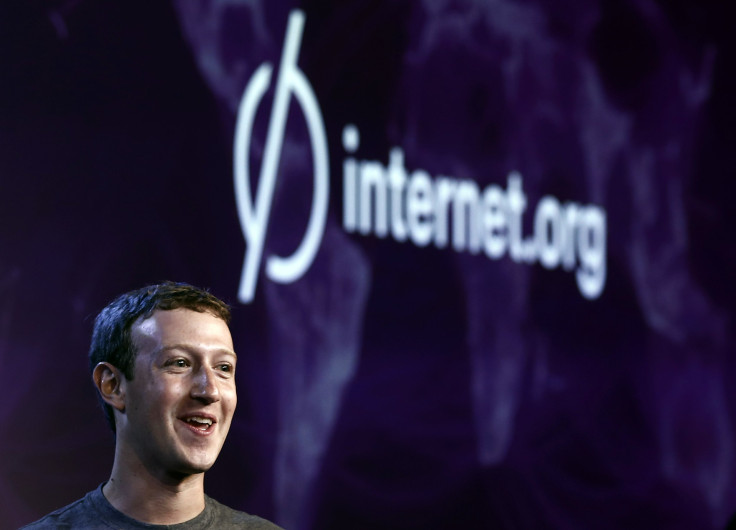Facebook Defends Internet.org In India, Opposes Preferential Access To The Internet: Report

Days before India's Prime Minister Narendra Modi is scheduled to speak at a town hall at the California headquarters of Facebook Inc., the social media company has defended offering free access to some websites and services to millions of consumers in the second most populous nation on Earth, the Times of India reported Friday.
Facebook brought the Internet.org program to India earlier this year in partnership with Reliance Communications, the country's fourth-largest wireless provider. By installing the Internet.org app on their phones, subscribers of Reliance's services get free access to sites including the Times of India, the country's biggest English-language daily.
And activists in India have urged both individuals as well as corporate businesses to reject the program, arguing that it selectively presents Facebook, or other proponents of such plans, as the de facto providers of access to the Internet. Facebook also offers the program in other emerging countries in Southeast Asia, Latin America and Africa.
"This program is not exclusive and is open to all operators. We are trying to work with others, and are anxious to work with them," Kevin Martin, vice president for Facebook's mobile and global access policy, said on the sidelines of an event, India Economic Convention, in New Delhi, the newspaper reported. The company did not violate the principles of an open and free Internet, Martin reportedly added.
.@_digitalindia Facebook's Kevin Martin says: "Be humble in approach to innovation" #IEC2015 pic.twitter.com/DbZJFSV6B5
— ICC WBO (@iccwbo) September 17, 2015Some companies, including Indian broadcaster NDTV and travel site Cleartrip.com have reportedly left, while the Times Group itself said it would exit the initiative if all its competitors left Internet.org.
Initial consensus within India's federal government was that the program was against the principles of net neutrality, the Times of India reported in May. India's official stance on net neutrality is expected soon.
.@rsprasad: Internet penetration in #India has reached 350 million. Second only to China #IEC2015 pic.twitter.com/yCS3rckd3H
— ICC WBO (@iccwbo) September 17, 2015A plan by Bharti Airtel, India's biggest wireless provider, to charge users nothing when they access specific sites but charge a fee instead to the sites' owners, has also drawn public ire, adding to the debate on net neutrality.
The practice, termed "zero rating," would allow the wireless provider and the companies who pay for their sites to get free access, which could potentially throttle rival sites -- of startups for instance that may not have the same deep pockets -- and discourage users from freely choosing where they want to go on the Internet, activists have argued.
Facebook was opposed to such paid access, according to the newspaper report Friday: "So when a user purchases Internet access, they should be able to go where they want to," the Times of India cited Martin, a former chairman of America's Federal Communications Commission, as saying. "We are concerned about paid prioritization for fast lanes. We are opposed to this. There should be no throttling."
© Copyright IBTimes 2024. All rights reserved.






















